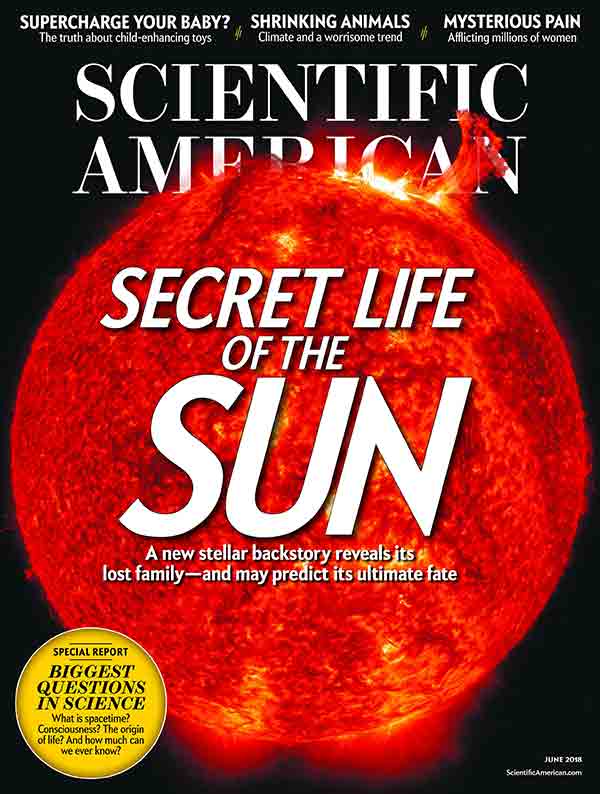Google as a window into our private thoughts
What are the weirdest questions you’ve ever Googled? Mine might be (for my latest book): “How many people have ever lived?” “What do people think about just before death?” and “How many bits would it take to resurrect in a virtual reality everyone who ever lived?” (It’s 10 to the power of 10123.) Using Google’s autocomplete and Keyword Planner tools, U.K.-based Internet company Digitaloft generated a list of what it considers 20 of the craziest searches, including “Am I pregnant?” “Are aliens real?” “Why do men have nipples?” “Is the world flat?” and “Can a man get pregnant?”
This is all very entertaining, but according to economist Seth Stephens-Davidowitz, who worked at Google as a data scientist (he is now an op-ed writer for the New York Times), such searches may act as a “digital truth serum” for deeper and darker thoughts. As he explains in his book Everybody Lies: Big Data, New Data, and What the Internet Can Tell Us About Who We Really Are (Dey Street Books, 2017), “In the pre-digital age, people hid their embarrassing thoughts from other people. In the digital age, they still hide them from other people, but not from the internet and in particular sites such as Google and PornHub, which protect their anonymity.” Employing big data research tools “allows us to finally see what people really want and really do, not what they say they want and say they do.” (continue reading…)
read or write comments (8)
Cautionary Tales from the Front Lines of Science
A review of On Fact and Fraud: Cautionary Tales from the Front Lines of Science by David Goodstein. This review appeared in the American Journal of Physics on July 14, 2010.
In 1609 Galileo turned toward the heavens a modified version of the telescope first invented by the Dutch spectaclemaker Hans Lippershey, and there he observed that satellites were orbiting Jupiter, that Venus had phases, and that there were mountains on the moon and spots on the sun. His claims challenged Aristotelian cosmology, which held that all objects in space must be perfectly round and perfectly smooth. After observing Saturn, however, Galileo wrote to Johannes Kepler, “Altissimum planetam tergeminum observavi” (“I have observed that the farthest planet is threefold”). He continued: “This is to say that to my very great amazement Saturn was seen to me to be not a single star, but three together, which almost touch each other.” Galileo saw Saturn not as a planet with rings as we see it today in even the tiniest of home telescopes, but as one large sphere surrounded by two smaller spheres.
Why did Galileo make this mistake? Two reasons: (1) Data—Saturn is twice as far away as Jupiter; thus what few photons of light there were streaming through the cloudy glass in his little tube made resolution of the rings problematic at best; and (2) theory—there was no theory of planetary rings. It is at this intersection of nonexistent theory and nebulous data that the power of belief is at its zenith and the mind fills in the blanks. (continue reading…)
Comments Off on On Fact and Fraud
Journal article explanations of how science
works often differ from the actual process
According to 55 percent of 350,000 people from 70 countries who participated online in Richard Wiseman’s Laugh Lab experiment (discussed in last month’s column), this is the world’s funniest joke:
Two hunters are out in the woods when one of them collapses. He doesn’t seem to be breathing, and his eyes are glazed. The other guy whips out his phone and calls the emergency services. He gasps, “My friend is dead! What can I do?” The operator says, “Calm down. I can help. First, let’s make sure he’s dead.” There is a silence, then a shot is heard. Back on the phone, the guy says, “Okay, now what?”
(continue reading…)
read or write comments (11)



